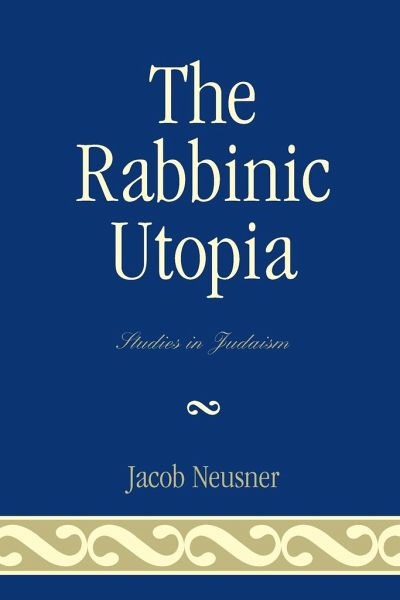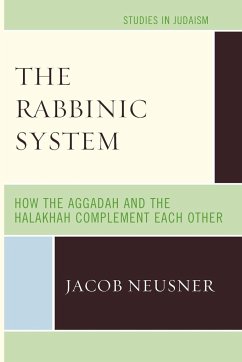
Rabbinic Utopia
Versandkostenfrei!
Versandfertig in 1-2 Wochen
51,99 €
inkl. MwSt.

PAYBACK Punkte
26 °P sammeln!
This book expounds upon the Utopian vision of Rabbinic Judaism in its classical documents. Rabbinic Judaism carries forward, and itself forms, a massive Utopian enterprise, a design of an ideal condition for humanity. It carries forward the two matched Utopian projects of the Pentateuch_Eden, the Land of Israel_and on its own forms a system for an ideal social and metaphysical order. That is because the law of that Judaism set forth a plan for the construction of an ideal society in a perfect age. Over time, the Israelite community undertook to realize that plan in concrete ways: to build Utop...
This book expounds upon the Utopian vision of Rabbinic Judaism in its classical documents. Rabbinic Judaism carries forward, and itself forms, a massive Utopian enterprise, a design of an ideal condition for humanity. It carries forward the two matched Utopian projects of the Pentateuch_Eden, the Land of Israel_and on its own forms a system for an ideal social and metaphysical order. That is because the law of that Judaism set forth a plan for the construction of an ideal society in a perfect age. Over time, the Israelite community undertook to realize that plan in concrete ways: to build Utopia in the green and pleasant Land of Israel. So, normative Judaism assumes as its task to realize a Utopian vision. Its vision takes the form of law. Some of the law at the time of its presentation in the Mishnah in ca. 200 C.E. and successor documents of amplification could be realized. Some could not. But the whole of the law formed a statement of integrity. All the parts were essential to the system. By fulfilling the law, or Halakhah, the faithful Israelite would help realize in the here and now Utopia, an ideal world.










![Some Aspects of Rabbinic Theology [microform] Cover Some Aspects of Rabbinic Theology [microform]](https://bilder.buecher.de/produkte/65/65503/65503313n.jpg)

